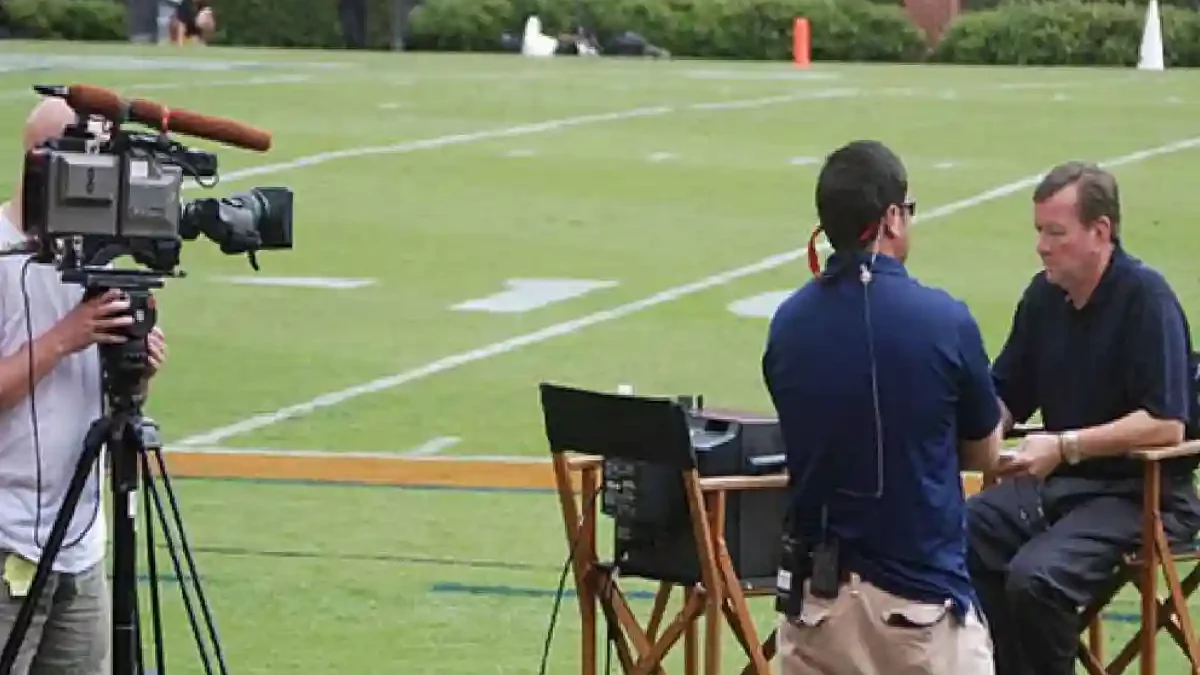Table of Contents
What is Sporting journalism?
Sports journalists work in all media, such as print, television, and the internet. Sporting journalism focuses on reporting amateur and professional sports news and events. If you are a sports fan and want to pursue journalism, read on to find out what you can do as a sports journalist.
Sporting journalism is the essential element of many media organizations. Sports coverage has grown in importance as the sport has grown in wealth, power and influence. In addition, some media is entirely dedicates to sports information.
Some examples include newspapers and magazines such as L’Equipe in France, La Gazzetta Dello Sport in Italy, and Marca in Spain; television networks such as Eurosport, Fox Sports and ESPN; sports radio stations such as BBC Radio 5 Live, ESPN Radio, Fox Sports Radio and TSN Radio; and websites such as ESPN.com, Foxsports.com and Yahoo! Sports.
Education and career opportunities
To become a sports journalist, you must complete a higher education program in journalism. In general, all journalists and reporters must have at least a high school degree. For example, you can enrol in a technical journalism degree, such as Toulouse Lautrec’s, or take sports journalism courses.
Through these programs, you can develop writing, interviewing, and reporting skills in multiple audiovisual formats and actively participate in internships to network and gain information about the profession.
Once you’ve run a few of these shows, you can find work covering amateur or school sporting events for local news sources, working for national sports media publications, or covering professional sporting events for sports television networks.
You can also report for various types of media, which we’ll cover in more detail below.
Types of media in which a sports journalist works
1. Print and Internet
Sportswriters who work in print provide detailed previews of upcoming events and post-match analysis and extensive scores, player stats, and team rankings.
Leading national newspapers report local and national sports and provide internet links to their content. In addition, major sports networks like ESPN maintain a significant and sophisticated online presence. As an athletic writer or reporter, you could create a blog, and write narrative articles and columns about sports.
2. Transmissions
Sports broadcast journalists provide real-time reporting and commentary on a sporting event for radio and television broadcasts. Sideline reporters interview players before, during and after a game, while production teams direct, edit and produce sports broadcasts.
Like its print counterpart, television has specialized sports networks, such as ESPN, that report sporting events, news, and entertainment programs.
3. Photojournalism
Sports photojournalists take pictures of sporting events to capture the game experience in a single image. Sports photojournalists’ work is finds in newspapers, television, the internet, and magazines such as Sports Illustrated.
What is the profile of a Sporting Journalist?
Most sportswriters have journalistic experience, although this is not always the case. This journalism training can be a degree in journalism or a related field. Additionally, it can take the form of practical writing experience.
Similarly, journalists who choose to write about sports often have an athletic background, even if it’s as simple as playing sports in college or at a semi-professional level.
However, many sportswriters have no athletic background other than an avid interest in games. Therefore, it is suitable in most situations as long as the writer is a good journalist and deep understanding and passion for sports.

